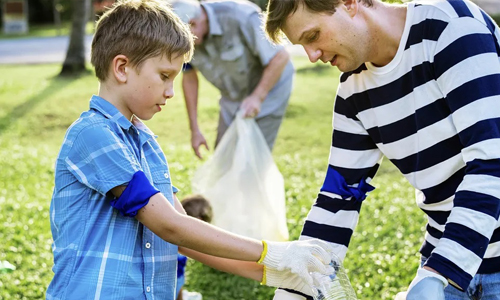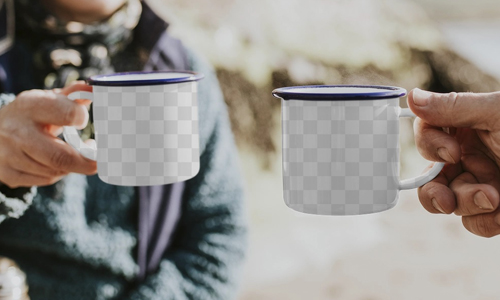Hiking and Camping: Reduce Pollution, Save Environment
Author

Author, writer, artist, photographer, analyst, dreamer, geek, gamer. As a freelance writer and blogger for Outdoor Look, Pete writes about the outdoors and why you should be in it. In the time that is left over from camping, running, hiking, cycling, writing novels and being a full time analyst, Pete sometimes mows the lawn, when he's ordered by Mrs Gillham!
Camping has great merits. From family bonding to improving physical and mental health, we all need camping breaks now and then. But, with camping, there are also responsibilities we must accept. Your love for outdoor activities and exploring new landscapes must come with the duties of keeping it clean as well as protected. Litter accidents are real and the RSPCA receives more than 7000 calls per year. Most of these accidents are those that cause harm to animals like badgers that have plastic cans stuck in their necks and hedgehogs with their heads inside tin cans. Moreover, you will be shocked to know how much money is required in the disposal of all of this waste. According to the sites that manage the National Park Authority, litter and garbage cleaning costs approximately £37k.

What is the best way to avoid land pollution while camping?
There are numerous ways you can help in the reduction of plastic waste while camping or even while going to a park. But, first, you need to understand where the problem lies.
How Are We Causing Pollution?
The sad truth is that we rely too much on plastic and that threatens our relationship with nature. Most people throw away plastic anywhere and everywhere leaving behind nothing but land pollution.
Each year, the Peak District collects tons and tons of general waste. Out of this, more than 50 tonnes are plastic and other such forms of waste and about 10 tonnes of the garbage collected is a recyclable waste. Nowadays, most parks, as well as the countryside, have become prey to our unclean habits. Garbage lies around in the form of plastic that ends up hurting animals and their natural habitats. More than 80% of visitors will agree that they had seen plastic deposits as litter at some point in their life.
Steps to Save the Environment
By following some small-scale steps, we can make a big difference. Here are some solutions that can curb this problem:
- Use bottles made of stainless steel or metal instead of using those meant for one-time use. Those bottles are thrown away which creates more litter. If you want you can take portable filters with you for long journeys. Get water to drink from natural resources.
- When you bring food to any outdoor activity, put them in reusable containers and jars. Use cutlery and plates that can be washed and reused. Avoid disposable plates or storage bowls. Instead, use metal ones that you can take back home.
- Wear clothes which have been recycled. Wear clothes made out of bamboo or wool. Try to avoid clothes like polyester and nylon which have microplastics.
- Avoid using plastic toothbrushes and go for the ones made of bamboo. Get toothpaste that is natural and available in metal tubes or glass jars. Get shampoo and soap bars that don't cause excess littering.

We have come up with some great ways to reduce the use of plastic while hiking, camping, biking, caravanning, or other such activities. There are so many ways to cut out on plastic use and reduce land pollution and degradation. You can also volunteer in several groups that have pledged to keep a place free of plastic.
Author

Author, writer, artist, photographer, analyst, dreamer, geek, gamer. As a freelance writer and blogger for Outdoor Look, Pete writes about the outdoors and why you should be in it. In the time that is left over from camping, running, hiking, cycling, writing novels and being a full time analyst, Pete sometimes mows the lawn, when he's ordered by Mrs Gillham!
Categories
- Sport (28)
- Product Reviews (3)
- Team Outdoor Look (7)
- Mike Wild (2)
- Mike Payton (2)
- Suse Hammond-Pears (3)
- Snowboarding (12)
- Latest Offers (105)
- Shop Talk (1)
- Competitions (7)
- Walking (413)
- Lifestyle Fashion (8)
- Travel (86)
- Kit Guides (176)
- Workwear Clothing (6)
- Safety Workwear (4)
- Health/Fitness (289)
- Skiing (91)
- Great Outdoors (1316)
- Cycling (92)
- January 2025
- December 2024
- November 2024
- October 2024
- September 2024
- August 2024
- July 2024
- June 2024
- May 2024
- April 2024
- March 2024
- February 2024
- January 2024
- December 2023
- November 2023
- October 2023
- September 2023
- August 2023
- July 2023
- June 2023
- May 2023
- April 2023
- March 2023
- February 2023
- January 2023
- December 2022
- November 2022
- October 2022
- September 2022
- August 2022
- July 2022
- June 2022
- May 2022
- April 2022
- March 2022
- February 2022
- January 2022
- December 2021
- November 2021
- October 2021
- September 2021
- August 2021
- July 2021
- June 2021
- May 2021
- April 2021
- March 2021
- February 2021
- January 2021
- December 2020
- November 2020
- October 2020
- September 2020
- August 2020
- July 2020
- June 2020
- May 2020
- April 2020
- March 2020
- February 2020
- January 2020
- December 2019
- November 2019
- October 2019
- September 2019
- August 2019
- July 2019
- June 2019
- May 2019
- April 2019
- March 2019
- February 2019
- January 2019
- December 2018
- November 2018
- October 2018
- September 2018
- August 2018
- July 2018
- June 2018
- May 2018
- April 2018
- March 2018
- February 2018
- January 2018
- December 2017
- November 2017
- October 2017
- September 2017
- August 2017
- July 2017
- June 2017
- May 2017
- April 2017
- March 2017
- February 2017
- January 2017
- December 2016
- November 2016
- October 2016
- September 2016
- August 2016
- July 2016
- June 2016
- May 2016
- April 2016
- March 2016
- February 2016
- January 2016
- December 2015
- November 2015
- October 2015
- September 2015
- August 2015
- July 2015
- June 2015
- May 2015
- April 2015
- March 2015
- February 2015
- January 2015
- December 2014
- November 2014
- October 2014
- September 2014
- August 2014
- July 2014
- June 2014
- May 2014
- April 2014
- March 2014
- February 2014
- January 2014
- December 2013
- November 2013
- October 2013
- September 2013
- August 2013
- July 2013
- June 2013
- May 2013
- April 2013
- March 2013
- February 2013
- January 2013
- December 2012
- November 2012
- October 2012
- September 2012
- August 2012
- July 2012
- June 2012
- May 2012
- April 2012
- March 2012
- February 2012
- January 2012
- December 2011
- November 2011
- October 2011
- September 2011
- August 2011
- May 2010
- April 2010
- March 2010
- February 2010
- January 2010
- November 2009
- October 2009
- September 2009


Submit a Comment